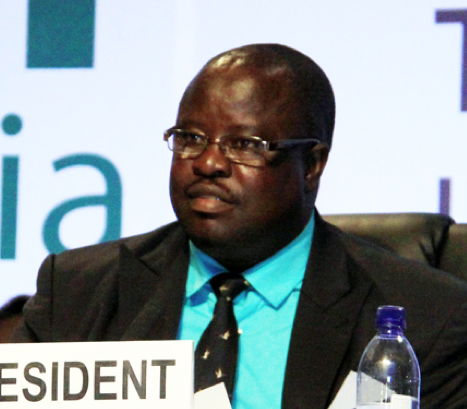 27 September 2013: Delegates at the Eleventh Session of the Conference of the Parties to the UN Convention to Combat Desertification (UNCCD COP 11) concluded their two-week meeting with the adoption of 41 decisions.
27 September 2013: Delegates at the Eleventh Session of the Conference of the Parties to the UN Convention to Combat Desertification (UNCCD COP 11) concluded their two-week meeting with the adoption of 41 decisions.
COP 11 convened from 16-27 September 2013, in Windhoek, Namibia. The Eleventh Meeting of the Committee on Science and Technology (CST 11) and the Twelfth Meeting of the Committee for the Review of the Implementation of the Convention (CRIC 12) convened in parallel to the COP. Approximately 3,000 people from governments, UN agencies and other international organizations, non-governmental organizations (NGOs) and civil society, participated in these meetings and associated events.
Among the nine decisions developed by the CST, delegates: agreed to establish a science-policy interface (SPI) to enhance the UNCCD as a global authority on desertification, land degradation and drought (DLDD) and sustainable land management (SLM); endorsed the Scientific Knowledge Brokering Portal (SKBP) to enhance knowledge management, including on traditional knowledge, best practices and success stories; approved the roster of independent experts; established two ad hoc working groups, one on the iterative participatory process on impact-indicator refinement and monitoring, and another to discuss options for providing scientific advice to the UNCCD; and called for a multi-stakeholder partnership model for launching a fellowship programme.
Delegates approved 12 decisions recommended by the CRIC, including on: best practices in the implementation of the Convention; UNCCD’s interaction with the Global Environment Facility (GEF); multi-year work plans of the Convention’s institutions and subsidiary bodies; assessment of financial flows for implementation; assessments of the implementation of the Convention against strategic objectives 1, 2 and 3, and against the operational objectives of the 10-Year Strategy; performance and progress indicators, methodology, and reporting procedures; and ways of promoting and strengthening relationships with other relevant conventions and international organizations.
The Committee of the Whole (COW), forwarded 20 decisions to the COP for adoption, including on: new housing arrangements of the Global Mechanism (GM); follow-up of the Rio+20 outcomes; improving mechanisms to facilitate regional coordination of the implementation of the Convention; implementation of the comprehensive communication strategy; and revised procedures for accreditation of civil society organizations (CSOs) and private sector representatives to the COP.
Among the 41 decisions adopted by COP 11, participants highlighted the consensus reached on establishing SPI and SKBP as tools to help the Convention become a global authority on scientific and technical knowledge, and launching an intersessional process to examine how to define the Convention’s goals on combatting DLDD in relation to the Rio+20 outcome calling for effort to achieve a Land Degradation Neutral World (LDNW).
During closing statements, delegates also highlighted that their decision to relocate the GM’s headquarters to Bonn, Germany, with a liaison office remaining in Rome, Italy, was a long-sought resolution to institutional challenges. The closing of COP 11 also marked the conclusion of UNCCD Executive Secretary Luc Gnacadja’s six-year tenure, and delegates thanked him for his contributions and welcomed his successor, Monique Barbut, former Chief Executive Officer and CEO of the GEF, as they looked forward to the directions that the COP 11 decisions and new leadership could take the Convention. [IISD RS Coverage of UNCCD COP 11] [IISD RS Coverage of Rio Conventions Pavilion] [UNCCD Press Release]